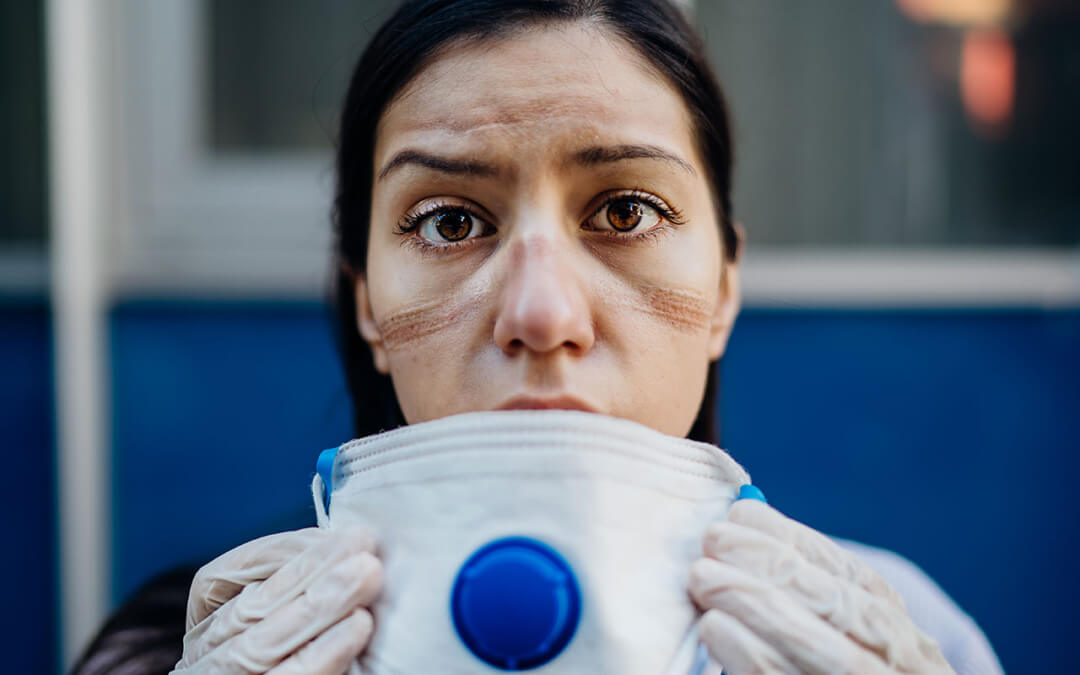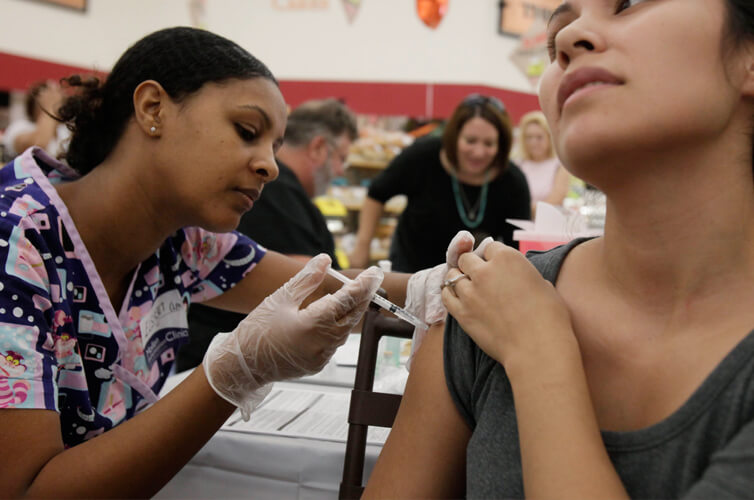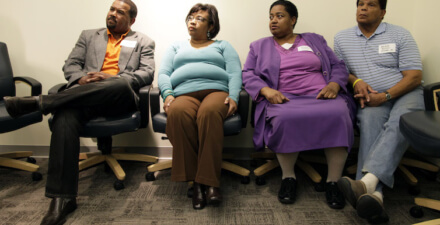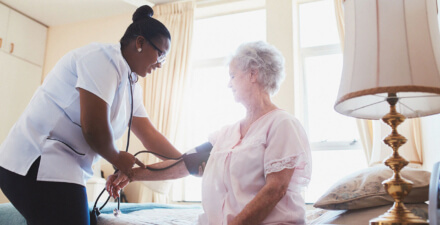A feminist economic policy agenda in response to the COVID-19 pandemic and the quest for racial justice

The displays of solidarity among Black Lives Matter protesters and frontline healthcare workers across the United States over the past month demonstrate the underlying links between multiple crises involving public health, the economy, and racial justice. The COVID-19 pandemic shines a bright light on the role of crucial care work undertaken by some of the most marginalized workers—in particular, the overrepresentation of women, and especially women of color, among low-wage healthcare workers on the frontlines, including home health aides, nurses, and nursing assistants. And the historic marginalization of populations along lines of race, gender, and class, particularly for Black and Latinx populations, limits how our nation provides for and values care work in the United States.
The gendered dimensions of these crises also are present in our homes. Women still do more of the unpaid work of caring for their families and communities compared to men. Black women are more likely to be breadwinners while also being responsible for caregiving. The COVID-19 pandemic increases the need for family caretaking not only because of the closing of schools and childcare facilities, but also because more people are sick and need care.
Together, these crises experienced in our homes and our workplaces point a spotlight on the foundational role of care in our society: caring for each other in our families and communities, as well as caring for the health of society, including those low-wage workers such as nursing assistants, whose jobs are crucial to the functioning of health systems but earn near-poverty wages. Yet the work of care is undervalued and often invisible.
The foundation of this profound inequality lies in the traditions and structures of patriarchy, where unpaid or low-paid domestic duties have been the purview of women for millennia. Even as some of this work increasingly entered the marketplace through professional care jobs such as nurses and childcare workers, it is still perceived by society as having low value. And the lowest paid careworkers often are Black and Latinx women workers facing multiple structural barriers in the economy.
This is partly because of the difficulty in conceptualizing and measuring the long-term benefits of providing quality care, which is at least partly why this type of work was left out of most of the history of economics. But this also is because structural sexism and misogyny still influences how society perceives what jobs are worthy of fair payment and acknowledgement.
Research and analysis of these harmful trends is left out of most of academic economics and sidelined in economic policy in the United States. But paid and unpaid care work has been central to the development of a subfield of economics called feminist economics. These economic scholars bring to light valuable lessons centered in feminist thought to demonstrate the value of care and guide policy to improve the well-being of care workers and care recipients alike. Women’s physical and mental health—and, by extension, the societies that rely on women and this work they are doing—are at stake.
Our own research shows that the COVID-19 pandemic exposes how gender roles are embedded in the U.S. labor market and within families and communities, ultimately leading to more work from women than from men. Black feminist economist scholar Nina Banks argues that community work is both racialized, as well as gendered, so Black women are creating social and economic value through caring for others in their communities. This community care work is more crucial now than ever. Although many of the challenges for women are not unique to this time, the COVID-19 pandemic exacerbates their impacts, making this an important moment to recognize the gendered and racial structures underlying this work and advocate for policies that support their well-being and security.
Any comprehensive response to the COVID-19 crisis must recognize this gendered work as an integral part of an economic system that promotes human well-being for all. A call for a feminist economic agenda for the World Health Organization ran recently in medical journal The Lancet. A leader to take this approach is Hawaii’s Department of Human Services, which has issued a Feminist Economic Recovery Plan for COVID-19. It is the first time an official U.S. state agency has developed an explicitly feminist plan to deal with this pandemic. Priorities include building the state’s social infrastructure and supporting job creation in green industries.
This is a model worth emulating. Economic policy should be constructed within a broader, feminist framework of human well-being and justice. Economic policy that has been solely concerned with the achievement of output-based metrics such as financial stability and Gross Domestic Product growth have always been inadequate in addressing how patriarchy and structural racism determine economic outcomes. This is now more clear than ever.
Americans are protesting racial injustice nationwide during a pandemic that has affected people very differently based on who they are and what jobs they have. The federal government continues to plan another economic recovery package of uncertain size and scope. Both the American public and policymakers in Washington need to embrace a comprehensive response to the COVID-19 crisis that emphasizes the importance and value of care work within families and communities and in the labor market as an integral part of the economic system. We must judge the success of policy responses by how they promote human well-being for all.







